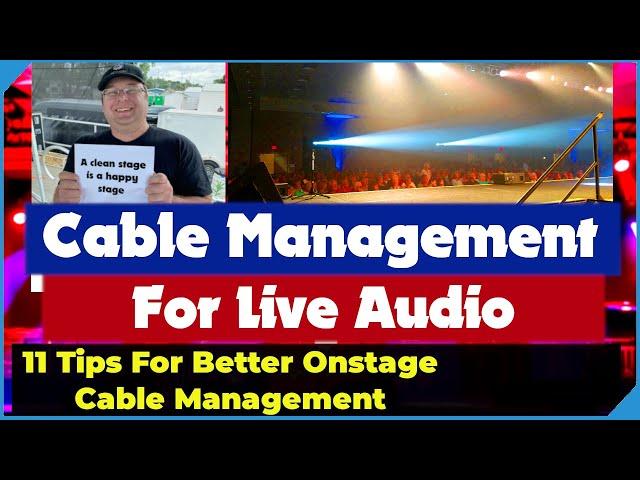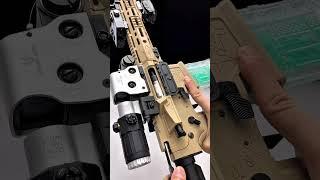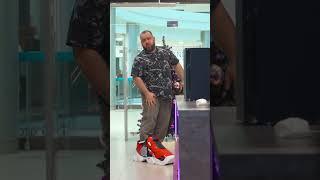
11 Tips for Stage Cable Management for Live Bands and Presentations
Комментарии:

Have you ever experienced any issues with running mic cables, speaker cables, and AC/power cables in close proximity/parallel to each other? According to the classic Yamaha Sound Reinforcement Handbook, if mic cables (low-level signals) have to intersect speaker or AC cables (high-level signals), they should intersect at 90-degree angles to prevent noise from being introduced into the mic lines. That would make what you are suggesting here (2 cable paths for all on-stage cabling) virtually impossible.
Ответить
I need every single musician I know to watch this video. I think all of us have been guilty of making unnecessary messes with cabling (sometimes on those throw-and-go shows I still find myself not taking the proper time to make it clean—bad habit I know), and these concepts are dead simple and, as you said, don’t cost a dime. Honestly, they’ll save you money in the long run when your cables aren’t getting destroyed from people tripping and stepping on them constantly.
Ответить
doesn't matter how neat you make a stage, the musicians sitting up and tearing down will turn everything into a snarled mess, they just don't care.
Ответить
Dude... Just the concept of where the slack should go is fundamental. I didn't know how to ask that kind of top-level question for ever. I appreciate the broad and specific info. Amazing
Ответить
Thanks Alan, this is really good
Ответить
Yes. This!
Ответить
Not audience walked on coiled microphone wire if walked on it cause accident to audience
Ответить
Beginner here. Thanks so much for your videos, I've watched them all! This video inspired me to buy a stageblock with both enough mic inputs and monitor outputs (we use separate buses with active wedges) to clean up the upstage mess and it worked so much better. We then put through the multi cable under the podium. Now we need to get shorter mic cables as previously we would run all lines separately to the mixer in a big taped off line.
Ответить
So extreme
Ответить
I recommend electrical tape instead of gaff or board tape. If left on for a long time, e-tape remnants are much easier to remove.
Ответить
Thanks for these tips.
As a hybrid user (digital mixer for FoH, analog mixer for multimedia, and snakes) it help me manage cables, especially for drums and wired mic for vocals.
Not clean as yours but it helps managing to minimal as it should be.
Its fun to watch your videos and implement it as max as I can.

Next time I’m down I’d like for you to check out my rig. I think you’ll dig what I’m doing..
Ответить
☮️❤️🎵
Ответить
A "clean" stage also helps your cables last longer due to not being walked on. Walking on "coiled" cable increases the potential for damage to the cable.
Ответить
Regarding starting your cable at the mixer or snake position. While this is true with a regular coiled cable setup, when you use, and you should, Over/under coiling option you would start at the instrument position.
Ответить
We have individual "snakes" for every performer, mic, DI, and monitor cables zip-tied together, labeled, and color coded. Works great until one of the XLR's goes bad.
Ответить
Most of this is true, however, I run AC power from one side of the stage, and run audio from the other side keeping the cable overlaps at a 90 degree angle to minimize induction fed AC hum in the audio lines. This is more important with the mic cables than line level from the snake to amps. Yes, it is more work, but the less hum introduced, the less you have to EQ it out. Another tip, use as many wall outlets you can find, it will give you less headache later and make blowing a breaker less likely. Always tape the cables down, this prevents tripping and possibly pulling your and the bands expensive equipment to the ground. Use color coding with numbers or initials of band members for your tape at BOTH ends of your run for, AC power, MIC cables, return to amp cables, and low signal from instruments, if there is an issue, it helps with troubleshooting.
Wireless is a great way to minimize cable runs, use for vocals. Use wired for instrument miking since they are stationary.
Just my two cents worth.

Got a small gig coming up so this was super helpful to watch. Thank you!!
Ответить
How do you change your last name to Audio? I wanna be Vinnie Video!
Ответить
Very basics but SUPER important to burn into your brain for this industry
Ответить
Thank you
Ответить
great video very informative
Ответить
alan - did you check fan direction for qsc and crown?... the qscs might be drawing in hot air... just a thought. Also I use white Etape for labelling, i seems to leave the least amount of residue if accidentally left on.
Ответить
I can't thank you enough for making all these videos. I highly recommend anyone doing stage hand work or sound to watch this channel- great training vid for new hires as well
Ответить
What is the proper name for the bottom rack piece that connect from the power amps to the front panel to hook up monitors and mains. Thanks
Ответить
Great video, thanks! What about power cabling? Didn't see much of it in this video.. Do your power cabling before signal cabling? Can you run power and mic/line cables alongside each other with no risk of inducing hum etc..? Tips from a pro is always appreciated! :)
Ответить
Hi Allan, not sure if this is something you’ve done already but would you be able to give your take on how you would split your signal to use the XR18 as an in ear mixing system while sound also goes to FOH?
Ответить
the gaffers tape leaves a horrible residue after long usage... any way to prevent this?
Ответить
These videos are absolute gold 😎👍🍻Cheers 🍻
Ответить
When i set up a delay line should i use an audio matrix or a mixbus?
Ответить
Thank you! This should be automatic for audio folks, but it seems to be at a premium. Attention to detail separates the pros from the pretenders.
Ответить
Ever crew would do this if they had time to adjust.many shows dont have proper time management.
Ответить
I prefer to use electrical tape. When it gets old, it's easier to remove the remnants than with board (artist's) tape or gaff tape. (Don't stretch electrical tape when applying.)
Ответить
I love this channel. If you get time, can you make a tutorial soon giving some tips on how to EQ the master bus in a live setting
Ответить
Thanks again Alan, all your videos have so much useful information. I now use aux fed subs all the time, send my vocals pre EQ to the monitors and EQ my kick drum following your advice. I also played with the reverb decay time for a nicer drum effect. You’re one of the good things that came out from the COVID shut down!
Sergio

Alan, this is a great refresher for those of us who are really getting back to work...
Ответить
Love this type of video, Alan. Thanks!
Ответить



![[엑소_백현] 에리들 뭉클하게 만드는 아이앤비100 변대표의 이야기.. [엑소_백현] 에리들 뭉클하게 만드는 아이앤비100 변대표의 이야기..](https://rtube.cc/img/upload/QU9MOVBYSGY1V3I.jpg)





















